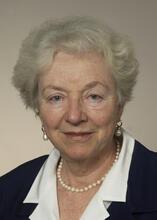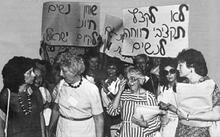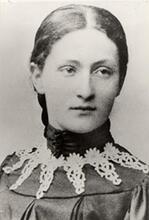Elsie K. Sulzberger
Elsie Sulzberger had an important public career through her leadership in the National Council of Jewish Women (NCJW) and in the early twentieth-century birth control movement. Sulzberger lived the majority of her adult life in Detroit, maintaining an active volunteer career in both Jewish and secular organizations. Her Jewish organizational leadership was primarily on the local level as the vice president of the Detroit section of NCJW and the Detroit League of Jewish Women. Her chosen secular cause was the early birth control movement as a member of the Michigan Birth Control League and as vice president of the Detroit Maternal Health Section. Her most important contribution was the establishment of three birth control clinics in the Detroit area, founding the first one in 1927.
Article
Elsie K. (Elsepet Kohet) Sulzberger had an important public career through her leadership in the National Council of Jewish Women (NCJW) and in the early twentieth-century birth control movement.
She was born in Hungary, on September 5, 1884, to Rabbi Alexander and Elsepet (Elizabeth) Kohet and was educated at Hunter College and Barnard College, receiving her B.A. in 1906. She married Mayer B. Sulzberger in 1910, and they had one daughter, Evalyn.
Sulzberger lived the majority of her adult life in Detroit, Michigan, maintaining an active and diverse volunteer career in both Jewish and secular organizations. Her Jewish organizational leadership was primarily on the local level as the vice president of the Detroit section of NCJW and the Detroit League of Jewish Women. However, she achieved national recognition at the 1923 meeting of the National Federation of Temple Sisterhoods concerning “The Jewish Problem in the Larger World.” In a speech, she protested the modern Jewish attitude of condescension based on the ancientness of Judaism, adding that “the glories of which we boast become mere crutches to a limping self-esteem.” Sulzberger then urged modern Jews to seek their own laurels and “not snatch them from the heads of our progenitors.” Specifically, she called for increased volunteer activity on the part of American Jewish women, emphasizing that a “good name in man or woman … comes with doing public chores,” adding that “as the Jewish woman is seen attending energetically to the world’s work, the prejudice that is a suspicion of her aloofness will disappear.”
Outside the Jewish organizations, Sulzberger unquestionably practiced the volunteerism she preached. Her chosen secular cause was the early birth control movement as a member of the Michigan Birth Control League and as vice president of the Detroit Maternal Health Section. Her most important contribution, however, was the establishment of birth control clinics in the Detroit area, beginning with the Mother’s Health Clinic in 1927. The Mother’s Health Clinic, of which Sulzberger was both the founder and first president, was reputed to be the only birth control clinic between New York and Chicago in the late 1920s. In 1933, she established two more local birth control clinics, one within the North End Clinic and the other at the Dunbar Hospital, the latter then a segregated, all-black hospital. She also had an active literary career as the editor of the Detroit Club Woman Magazine from 1921 through 1931 and as the author of many poems, essays, and short stories.
Elsie K. Sulzberger died on November 17, 1977.
BEOAJ.
“Reform Judaism Program Discussed.” NYTimes, January 26, 1923, 11.
Rogow, Faith. Gone to Another Meeting: The National Council of Jewish Women, 1893–1993 (1993).









